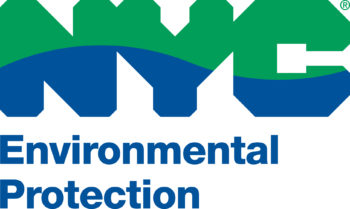
Image Credit: Department of Environmental Protection
City prioritizes safe drinking water with infrastructure investment. On July 23, 2020, the New York City Department of Environmental Protection announced that during the first week of August, construction of a stormwater collection system near the Cross River Reservoir would commence. The stormwater collection system is intended to enhance reservoir protections by capturing runoff, sediment and nutrients from a 9.3-acre drainage area in the town of Bedford. The venture is projected to cost nearly $1.1 million and expected to occupy 1 acre of city-owned property east of the Cross River Dam.
The stormwater collection system will collect runoff from an area along Maple Avenue, a gravel road that runs downhill towards the reservoir. DEP will improve and reinforce several hundred feet of roadside ditches by lining the ditches with stone to prevent erosion. The ditches will then direct water into a new system of underground pipes and filters that will remove sediment. Clean water will then be conveyed through a stone-lined channel into the reservoir.
DEP estimates that the new stormwater system will capture more than 6 pounds of phosphorous each year. Phosphorus can degrade water quality by facilitating the growth of algae or by changing the taste and smell of the drinking water. There are over 100 stormwater control practices near City reservoirs. DEP provides regular maintenance to these systems as it will continue to do here.
At full capacity, the Cross River Reservoir stores 10.3 billion gallons of drinking water. The water is collected from a 30-square mile watershed, largely located in the Westchester County towns of Bedford, Lewisboro and Pound Ridge. The system provides around 10 percent of New York City’s drinking water on a daily basis.
DEP Commissioner Vincent Sapienza stated, “Stormwater infrastructure is crucial for maintaining the high quality of water in our reservoir system,” adding, “these sensible investments in watershed protection keep New York City’s drinking water tasting great, while also helping to save money on more costly forms of treatment or filtration.”
Construction is expected to last 4 months. A portion of Maple Avenue will be closed for approximately two days, but no other long-duration road closures are expected. Work on the facility will generally be Monday through Friday from 8:00 A.M. to 4:30 P.M.
In addition to this coverage, CityLand will continue its coverage of the COVID-19 impact on New York City and its related government entities. For New York City-specific COVID-19 updates, the City established an information site with updates from all major administrative agencies. Agencies include the Department of Buildings, City Planning, Citywide Administrative Services, the Department of Finance and the Department of Transportation among others. You can find that page here.
By: Jason Rogovich (Jason Rogovich is the CityLaw Fellow and New York Law School Graduate, Class of 2019)

